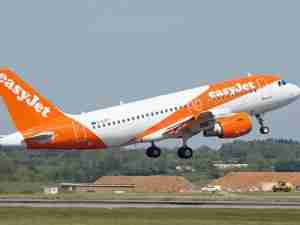The Association says the application to apply a curfew on flights from 2200hrs to 0659hrs daily at Bob Hope Airport fails to meet the statutory conditions that FAA must use to conduct its evaluation and would not adhere to the 'balanced approach' recommended by the International Civil Aviation Organization (ICAO).
In its submission to the FAA, BGPAA states that its goal is to 'eliminate or to significantly reduce night-time aviation-related noise at the airport, now and in the future, to provide meaningful night-time noise relief to the communities it serves.'
In its response to the FAA, TIACA says it believes the proposed curfew fails to meet the nondiscriminatory and reasonableness standards of the statutory conditions and would also jeopardize efficient use of navigable airspace, contributing to an undue burden on the national aviation system.
Daniel Fernandez, Secretary General of TIACA, said: 'The only aircraft currently operating at Burbank during the proposed curfew period are all-cargo carriers. Imposing the curfew would therefore have a discriminatory effect on all-cargo operations. It should be noted that there are many legitimate and important reasons for operating aircraft during overnight hours. These include overall fleet and flight structure; infrastructure constraints; timing efficiencies; and customer needs with respect to drop-off and delivery.
'Those few airlines that currently operate during overnight hours do so for compelling reasons but, because they are such a small component of Burbank's daily activity, contribute only marginally to the airport's noise and traffic. However, they do contribute significant jobs, rents, and taxes to the airport and surrounding community, and the cargo shipped supplies many local businesses. Furthermore, because these activities take place during relatively low-traffic hours, deliveries can be made more efficiently, contributing to the overall economic and environmental health of the area.'
BGPAA contends that the few operators affected by the curfew would simply shift their operations to nearby airports. TIACA believes that the current night-time operations at Burbank could not be easily shifted elsewhere, and any shifts would have significant economic and environmental consequences, as has been amply detailed by the submissions made by those operators, that are already part of the public record related to this application.
TIACA recognizes the success of the airport in achieving a 95% compliance rate through its voluntary efforts to restrict flights during overnight hours. Additionally, all aircraft flying into Burbank are 'Stage III' and are therefore quieter than most other aircraft. TIACA believes that this impressive achievement is a strong indication of the reasonableness and effectiveness of the current, voluntary approach ' and that continuation of this approach is a preferable outcome to imposing a nighttime curfew.
'If the FAA were to approve a curfew at Burbank, it would set a damaging precedent that might affect its pending reviews of similar applications, and might also prompt initiatives by other airport authorities for comparably restrictive actions. This could result in a lengthy cycle of reviews by the FAA and, if some of the applications were approved, create a confusing patchwork of night-time restrictions at various airports that would force significant reconfigurations in existing airline schedules. This could have substantial impacts on the many businesses depending on airfreight for their shipments, lead to inefficiencies in airspace usage and, potentially, place undue burdens on the airports that accept additional, displaced, flights,' Daniel Fernandez added.
The application is under review by the FAA, which must issue its determination on or before November 1, 2009. (TIACA)











